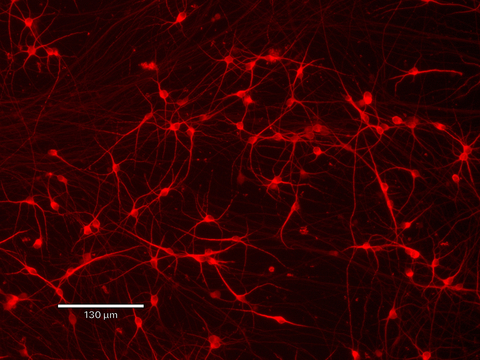CAMBRIDGE, England– bit.bio, the company coding human cells for novel cures, today announces the launch of the first offering from its new product range – ioCRISPR-Ready Cells™. This new range has been designed for scientists looking to generate gene knockouts in physiologically relevant human cells.
CRISPR-Ready ioGlutamatergic Neurons were developed by adding a constitutively-expressed Cas9 nuclease to bit.bio’s wild type cells. These cells enable gene knockouts and can be scaled to high throughput pooled or arrayed CRISPR screens. Potential applications include functional genomics, disease model generation, drug target identification and fundamental human biology research.
The cells are precision reprogrammed from human iPSCs with bit.bio’s opti-ox technology, meaning they are defined and highly characterised human neurons that have inherent experimental scalability, offer unparallelled consistency and are simple to handle and culture.
Mark Kotter, Founder and Chief Executive Officer, bit.bio said:
“Today, we’re bringing simplicity to complexity. With ioCRISPR-Ready Cells, we’re putting the future of genomics in the hands of every scientist. This is the next step on our mission to democratise access to human cells and we look forward to seeing the breakthroughs and discoveries that will be enabled by this new product range.”
CRISPR-Ready ioGlutamatergic Neurons arrive ready-to-use and enable researchers to achieve high gene knockout efficiencies and functional experimental readouts in days. This significantly reduces experimental timelines. In addition, scientists no longer need to spend months engineering and characterising their own Cas9-stable iPSC lines and associated differentiation protocols. Using CRISPR-Ready ioGlutamatergic Neurons, robust experimental readouts can be achieved without prior expertise in iPSC differentiation or guide RNA delivery optimisation.
Farah Patell-Socha, VP Research Products, bit.bio said:
“Scientists will now have access to a powerful functional genomics tool to study genes of interest in a defined human iPSC-derived cell system. Gene knockout experiments such as CRISPR screens that would previously require substantial time and specialised skills can now be undertaken in weeks by scientists with all levels of experience.”


